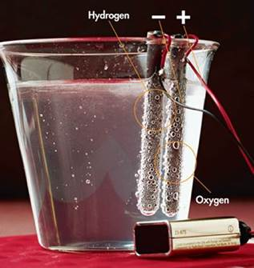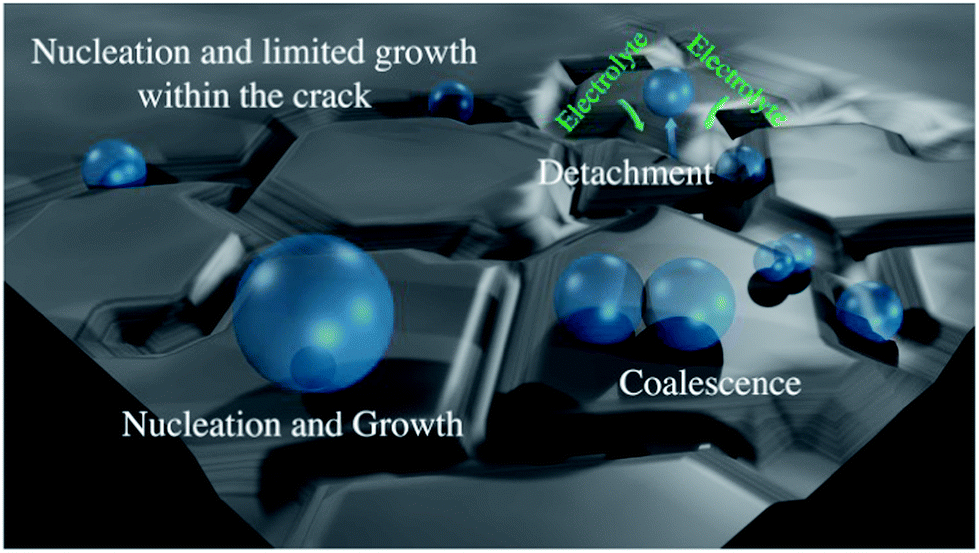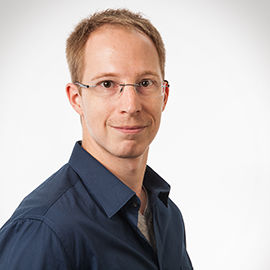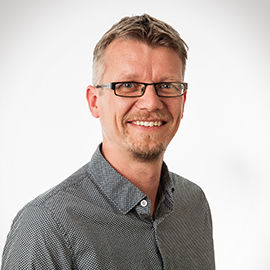More than a million for research on electrified bubbles
An NWO TA (Technology Area) grant of more than a million euros has been awarded to a team of researchers to investigate the formation of hydrogen bubbles, the transport of chemical species near the bubbles and the electrodes, and the interaction between bubbles. Large scale production of hydrogen is possible by electrochemically splitting water into hydrogen and oxygen. The flow and transport processes near electrodes is poorly understood, in particular around the produced hydrogen bubbles. A better understanding can help to increase the efficiency.
Efficient processes to convert renewable electrical energy into hydrogen are crucial to realize the energy transition. Within this project, Prof. Johan Padding and Dr. Remco Hartkamp of the 3mE department Process & Energy and e-Refinery, will develop detailed mesoscale models to predict the nucleation, growth and transport of bubbles. Understanding these phenomena near electrodes is not only of importance for the production of hydrogen, but also for direct electroconversion to base chemicals and fuels. The insights from these research can be used by the directly involved industrial partners Shell and Nouryon to make their electrolysis processes more efficient.
e-Refinery
The research of Johan Padding and Remco Hartkamp supports the TU Delft e-Refinery to achieve its objectives. This programme is working on a breakthrough technology that will directly convert CO2 and water into hydrocarbons, such as ethylene. These hydrocarbons can subsequently be used as renewable raw materials, fuels and as a storage medium for sustainable electric energy. www.tudelft.nl/e-refinery
Technology Area
TA (Technology Area) is one of the public-private partnerships that is financed from the Innovation Fund Chemistry from the NWO domain Exact and Natural Sciences. A TA is intended for public-private partnerships between at least two companies and at least two knowledge institutions. The joint demand from different companies is being investigated by different research organizations. TAs are funded 1/3 by the business community and 2/3 by NWO.



